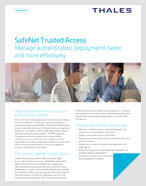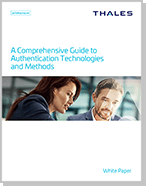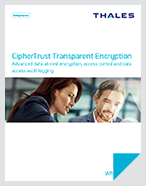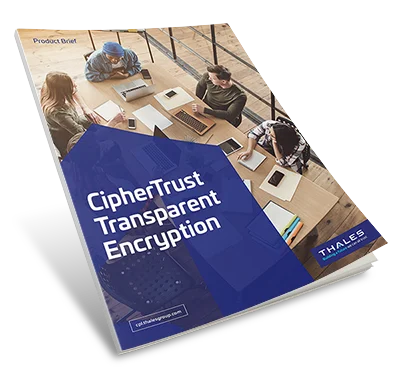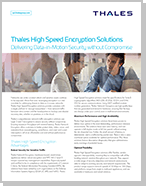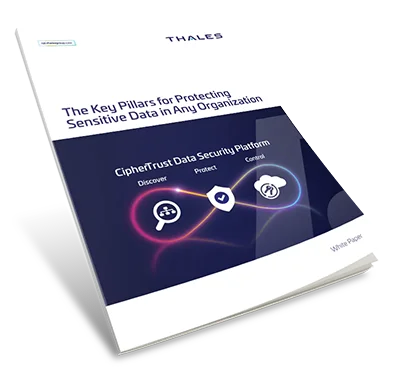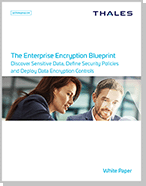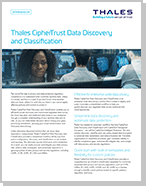Japan My Number Compliance
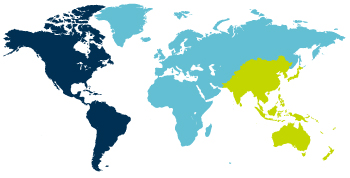
Thales can help organizations comply with data security regulations governing storage and use of Japan’s My Number data. These compliance regulations include prevention of data leakage, loss or damage; supervision of employees handling the data; and supervision of third parties entrusted with the data.

- Regulation
- Compliance
Regulation Summary
The data security requirements for businesses handling data associated with an individual’s Japanese My Number are governed primarily by Japan’s Personal Information Protection Act (PIPA)1.”
These include:
- Taking necessary and proper measures for the prevention of leakage, loss, or damage, and for other security control of personal data
- Exercising necessary and appropriate supervision over the employees handling the data to ensure the security control of the personal data
- Exercising necessary and appropriate supervision over any persons of organizations entrusted with the data to ensure the security control of the entrusted personal data
Thales can help your organization meet these requirements.
Best practice security solutions
Best practice for preventing leakage or loss of data is strong access management and authentication combined with transparent encryption, integrated cryptographic key management, and security intelligence. Thales provides these solutions to help organizations collecting and using My Data information meet PIPA regulations.
Strong access management and authentication
Thales Access Management and Authentication solutions provide both the security mechanisms and reporting capabilities organizations need to comply with data security regulations. Our solutions protect sensitive data by enforcing the appropriate access controls when users log into applications that store sensitive data. By supporting a broad range of authentication methods and policy driven role-based access, our solutions help enterprises mitigate the risk of data breach due to compromised or stolen credentials or through insider credential abuse.
Support for smart single sign on and step-up authentication allows organizations to optimize convenience for end users, ensuring they only have to authenticate when needed. Extensive reporting allows businesses to produce a detailed audit trail of all access and authentication events, ensuring they can prove compliance with a broad range of regulations.
Data discovery and classification
The first step in protecting sensitive data is finding the data wherever it is in the organization, classifying it as sensitive, and typing it (e.g. PII, financial, IP, HHI, customer-confidential, etc.) so you can apply the most appropriate data protection techniques. It is also important to monitor and assess data regularly to ensure new data isn’t overlooked and your organization does not fall out of compliance.
Thales’ CipherTrust Data Discovery and Classification efficiently identifies structured as well as unstructured sensitive data on-premises and in the cloud. Supporting both agentless and agent-based deployment models, the solution provides built-in templates that enable rapid identification of regulated data, highlight security risks, and help you uncover compliance gaps. A streamlined workflow exposes security blind spots and reduces remediation time. Detailed reporting supports compliance programs and facilitates executive communication.
Protection of sensitive data at rest
Separation of privileged access users and sensitive user data
With the CipherTrust Data Security Platform, administrators can create strong separation of duties between privileged administrators and data owners. CipherTrust Transparent Encryption encrypts files, while leaving their metadata in the clear. In this way, IT administrators -- including hypervisor, cloud, storage, and server administrators -- can perform their system administration tasks, without being able to gain privileged access to the sensitive data residing on the systems they manage.
Separation of administrative duties
Strong separation of duties policies can be enforced to ensure one administrator does not have complete control over data security activities, encryption keys, or administration. In addition, the CipherTrust Manager supports two-factor authentication for administrative access.
Granular privileged access controls
The CipherTrust Data Security Platform can enforce very granular, least-privileged-user access management policies, enabling protection of data from misuse by privileged users and APT attacks. Granular privileged-user-access management policies can be applied by user, process, file type, time of day, and other parameters. Enforcement options can control not only permission to access clear-text data, but what file-system commands are available to a user.
Protection of sensitive data in motion
Thales High Speed Encryptors (HSEs) provide network independent data-in-motion encryption (Layers 2,3 and 4) ensuring data is secure as it moves from site-to-site, or from on-premises to the cloud and back. Our HSE solutions allow customers to better protect data, video, voice, and metadata from eavesdropping, surveillance, and overt and covert interception—all at an affordable cost and without performance compromise.
Other key data protection and security regulations
GDPR

Regulation
Active Now
Perhaps the most comprehensive data privacy standard to date, GDPR affects any organization that processes the personal data of EU citizens - regardless of where the organization is headquartered.
PCI DSS

Mandate
Active Now
Any organization that plays a role in processing credit and debit card payments must comply with the strict PCI DSS compliance requirements for the processing, storage and transmission of account data.
Data Breach Notification Laws

Regulation
Active Now
Data breach notification requirements following loss of personal information have been enacted by nations around the globe. They vary by jurisdiction but almost universally include a “safe harbor” clause.

